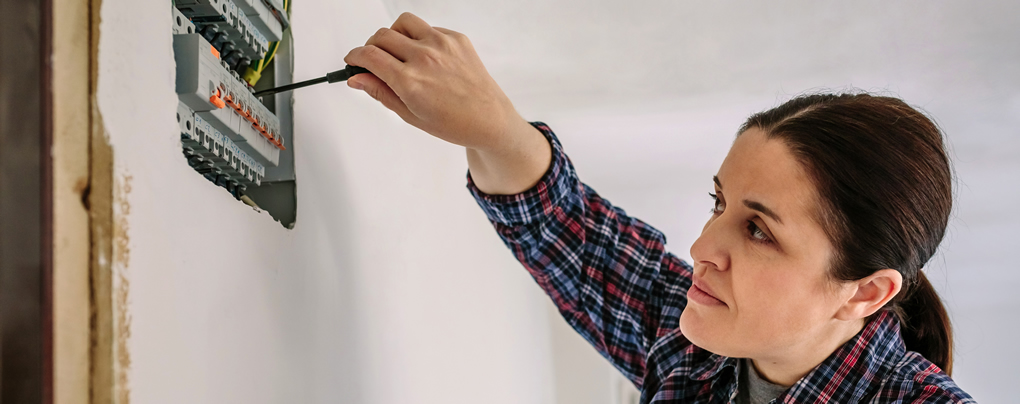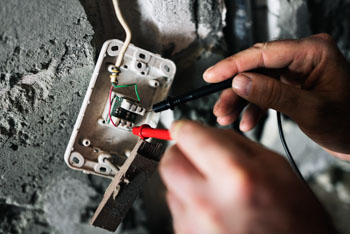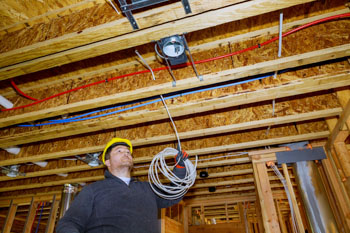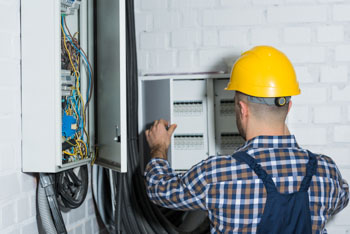What Do Electricians Do?
We cannot do without electricity, and we, therefore, cannot do without an electrician. Some of the roles they play are:
- They read out technical blueprints as well as diagrams.
- They check out the transformers, other available electrical components as well as circuit breakers to see if they are in perfect condition.
- They make use of their testing devices to troubleshoot any occurring electrical issues.

If you need any repairs done or need to replace your fixtures or electrical wiring, the electrician is the person to call. An electrician also runs corrective maintenance on the circuit breaker. They have great knowledge of air conditioning systems and can also test various equipment. The electrician will also check that the piping done in a house meets the electrical codes.
How Much Do Electricians Make?
In the US, the average salary an electrician earns is approximately $49,973. Generally, this income ranges between $44,000 and $56000, however, this income varies depending on many factors.

The academic qualifications will determine how much an electrician will earn. The higher the qualifications, the higher the electrician is likely to earn.
The more skilled an electrician becomes, the more certifications they earn. This also reflects on how much they earn. A higher qualified expert will earn more.
Some electricians will have just the basic electrician skills. However, some others have gone the extra mile to acquire additional skills. This will definitely help them earn higher salaries.
The number of years they have worked will also affect their incomes. People pay higher for an electrician who has worked longer and has more experience.
How An Electrician Changes A Plug
The electrician starts by switching off the main switch. They open the cover to help them see the fuses or even micro circuit breakers. They select the correct fuse and switch it off. They can lock it in that position to ensure it does not go back to the on position accidentally.
The expert confirms the circuit is dead and proceeds. They unscrew the socket, gently pulling the faceplate upwards. They loosen the screws, freeing the wires at the terminals.
If any insulation is heat damaged, they cut the cores, stripping the ends and leaving about 5 mm of copper wire exposed.
Once the expert is done with all the details of the wiring, they fit in the new faceplate, then test to make sure it’s working.
How To Find A Good Electrician Near Me
There are times you will need to find an electrician near you. Here are some tips to help you find a good electrician who will look after you.

Specify your specific project– Some electricians may be specific with the issues they tackle. Before you start the process of looking for an electrician, specify what you need to be done.
Check your network for recommendations– Asking your friends and neighbors to refer you to a good electrician works well too. Such people will recommend those that serve them well.
Check for the NICEIC certified contractors in the area– Such experts are the ones who operate with the highest possible standards. You will find every kind of electrical expert.
Difference Between Residential And Commercial Electricians
The services they offer– A residential electrician will offer different services from a commercial electrician. Residential one checks the safety, the installation, proper finishing as well as compliance in residential structures.

The commercial electrician offers the same services but on a larger scale, which is also more complicated. They install wiring systems, control panels and ensure the work follows the given official blueprints.
Tools they use– The residential electrician will use single-phase systems while the commercial one will use three-phase systems. Residential electricians will use thin gauge cabling, while commercial one will use cabling that needs more insulation.
Technical skills required– Both categories of electricians use the same basics of training. However, the commercial electrician deals with more complicated stuff and therefore needs more skill and experience than the residential one.
How Long Does It Take To Become A Residential Electrician
On an average scale, becoming an electrician takes four to five years. There is an apprentice program that one goes through to become an electrician.

The length of time one takes in school to become an electrician depends on a few factors.
Prior experience- Do you have prior experience in construction? That would qualify you to take a shorter time in school.
If you have any relevant academic qualifications, that would help to credit one towards the apprenticeship. Without such qualifications, it would mean one takes a little longer in school.
An approved relevant training program- There are some electrical training programs that allow one to qualify to start working as an electrician. Such training usually is approved by the relevant bodies. If you undertake such training, you would take less time to be an electrician.
What Is A Residential Electrician?
A residential electrician is that expert who works in home settings. They can fix any possible electric faults that could be in your home. They are also skilled to install new wiring installations.
In general, the residential electrician takes care of your domestic electrical safety issues. They ensure that each electrical component in the home is safe to use. Whenever you need to install lighting and wiring in your home, the person to go for is the residential electrician. If you have any need to troubleshoot or fix any residential electrical issues, the residential electrician will be your help.
The residential electrician also reads and interprets technical blueprints plus drawings. They are also familiar with the local and national regulations put in place for electrical systems.






